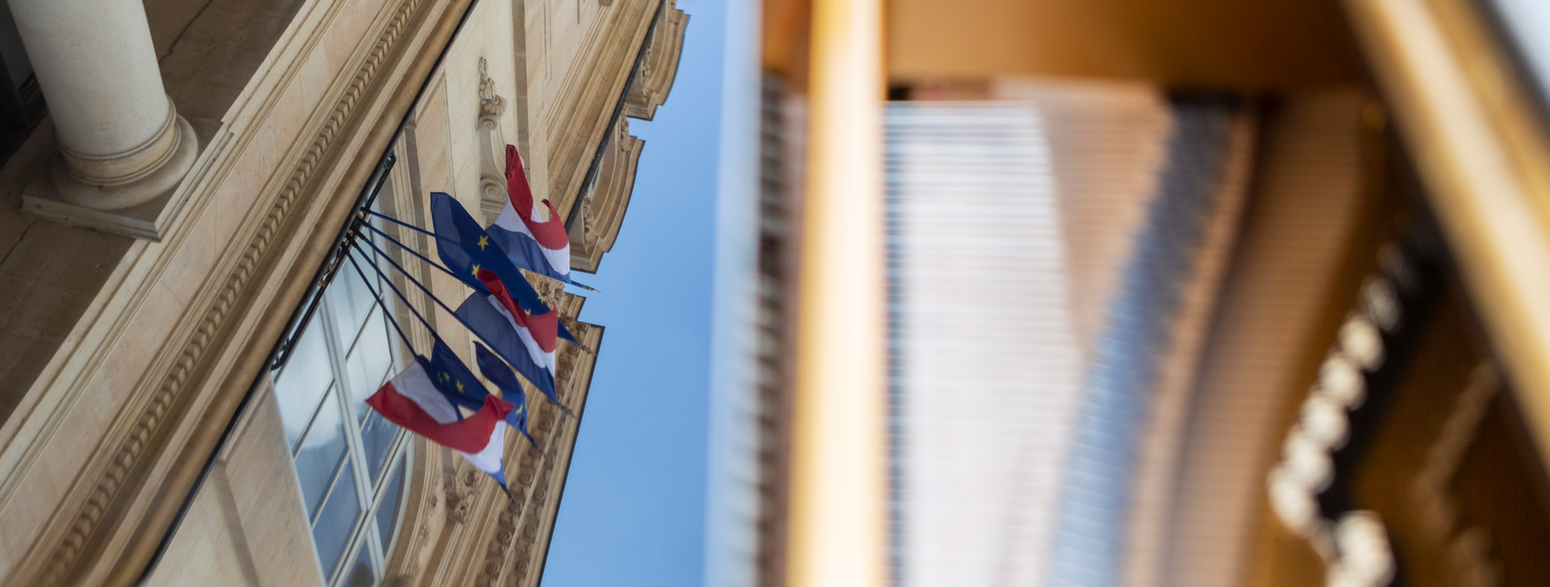History made this revolutionary war song a national anthem in praise of liberty which today rings out in most official events.
Its composer, Claude-Joseph Rouget de Lisle, born in 1760 in Lons-le-Saunier, was the captain of an engineering corps during the Revolution. On the night of 25-26 April 1792, following the declaration of war by the King of Austria, at the residence of Dietrich, the mayor of Strasbourg, he composed a piece which he called “"War Song for the Army of the Rhine”.
The anthem was first released in Alsace in handwritten and printed form before being taken up by many Parisian publishers. It was sung by the volunteers from Marseille partaking in the uprising at the Tuileries on 10 August 1792, it spread by word of mouth and became so popular that it was declared as the national anthem on 14 July 1795.
There is no single version of La Marseillaise, which from the outset was set to various forms of music, with and without singing. The early versions were unsigned, leading to doubts over whether Rouget de Lisle, who was a rather mediocre composer, really wrote them. Overwhelmed by the impact of his work, after the Revolution he fell back into obscurity and henceforth only wrote a few unsuccessful compositions.
La Marseillaise was banned under the Empire and the Restoration, only to be reinstated during the 1830 Revolution. Berlioz created orchestration which he dedicated to Rouget de Lisle. King Louis Philippe preferred a different, more conciliatory anthem, La Parisienne.
In 1879, the Third Republic chose La Marseillaise as the national anthem, without defining an official harmonization. This caused confusion when different orchestras met up, so a standard version had to be agreed upon. The Ministry of War saw to that in 1887, following a proposal from a committee of professional musicians.
On 14 July 1915, Rouget de Lisle’s ashes were moved to the Invalides.
In September 1944, a circular from the Ministry of National Education recommended that La Marseillaise be sung in schools to “celebrate our liberation and our martyrs”. Its status as a national anthem was reaffirmed in Article 2 of the 1946 and 1958 constitutions.
The rhythm has changed over the years: in the 20th century, it had been played slightly quicker than the original composition, before being marginally slowed down at the request of President Valéry Giscard d’Estaing. His successor, François Mitterrand, restored the quicker version, which remains in place today.
Over its two centuries of existence, La Marseillaise has inspired many pieces, from opera to jazz.
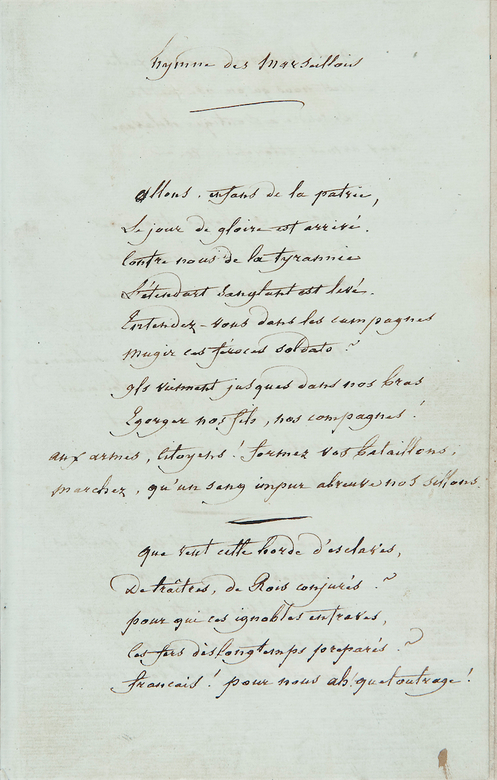
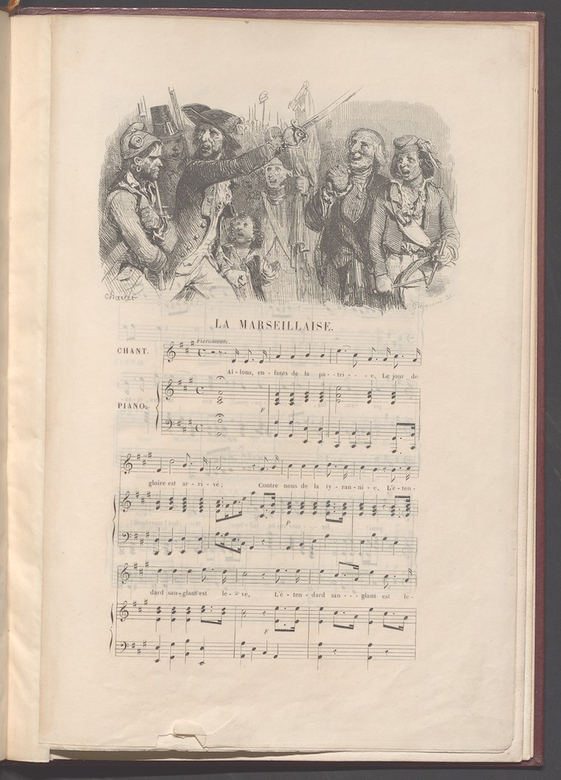
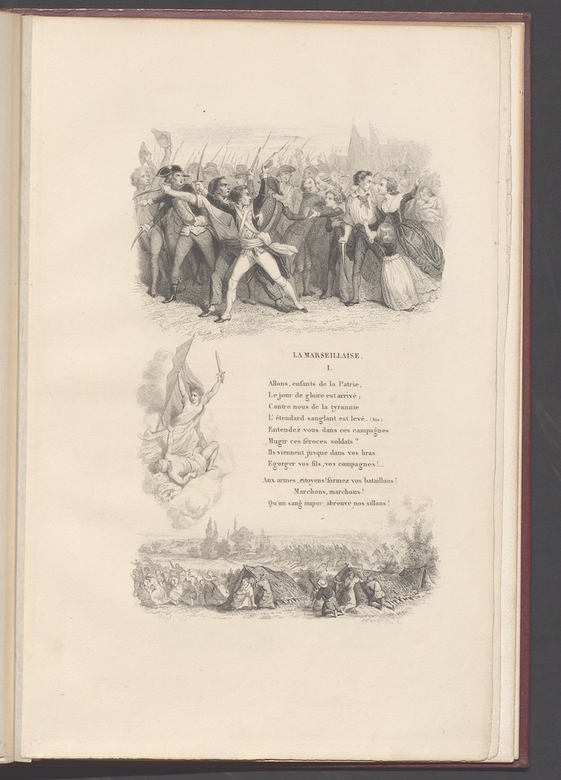
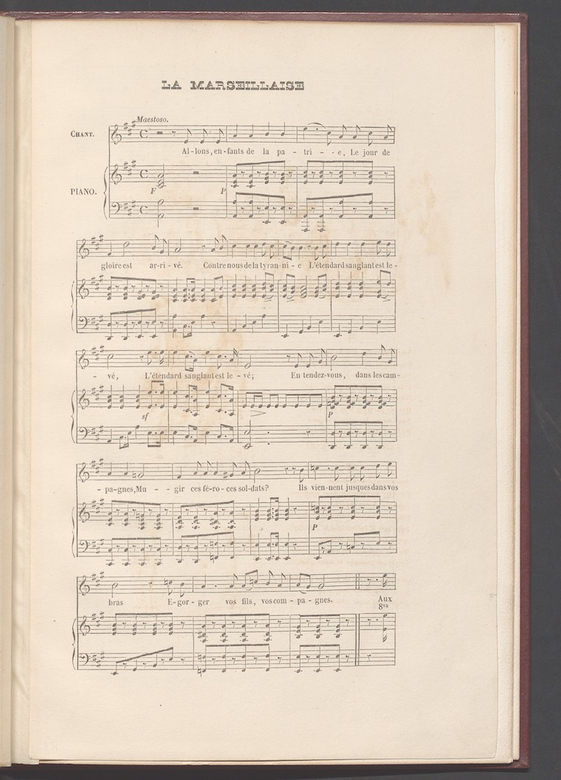
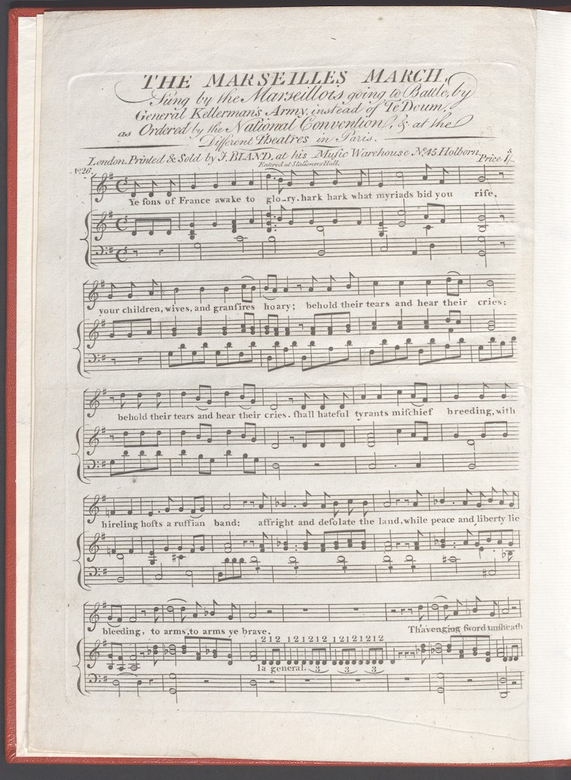
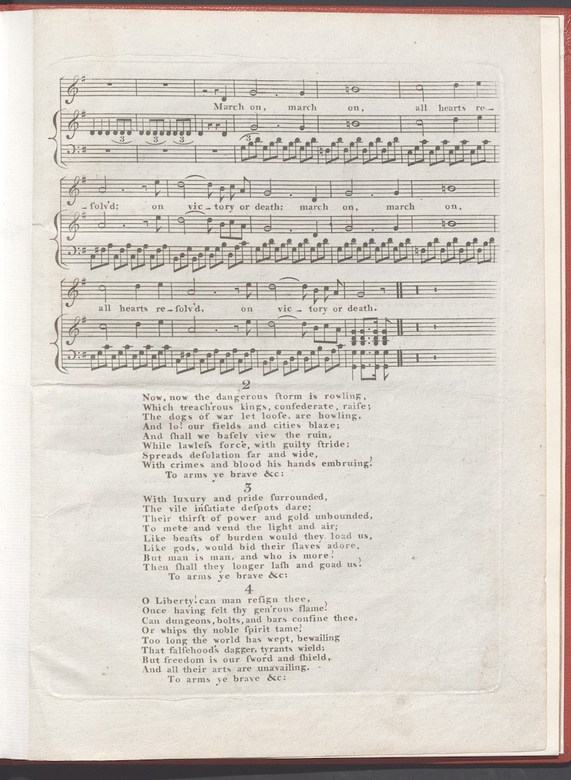
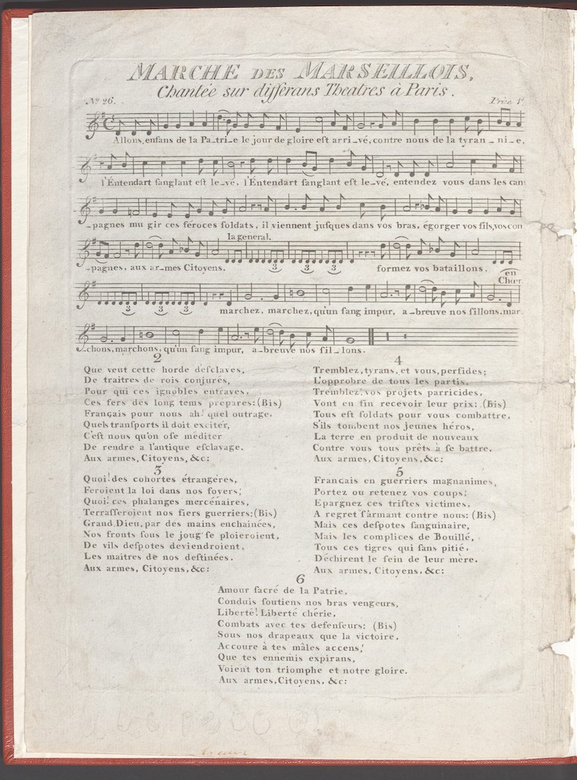
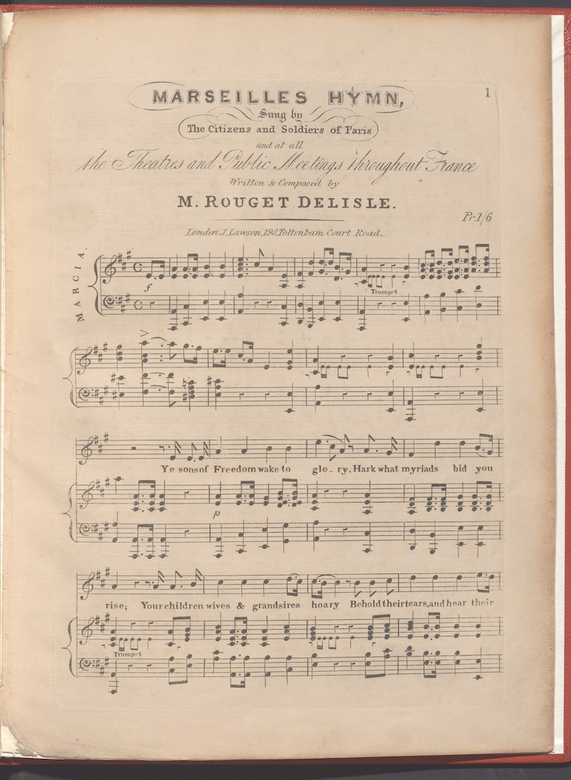
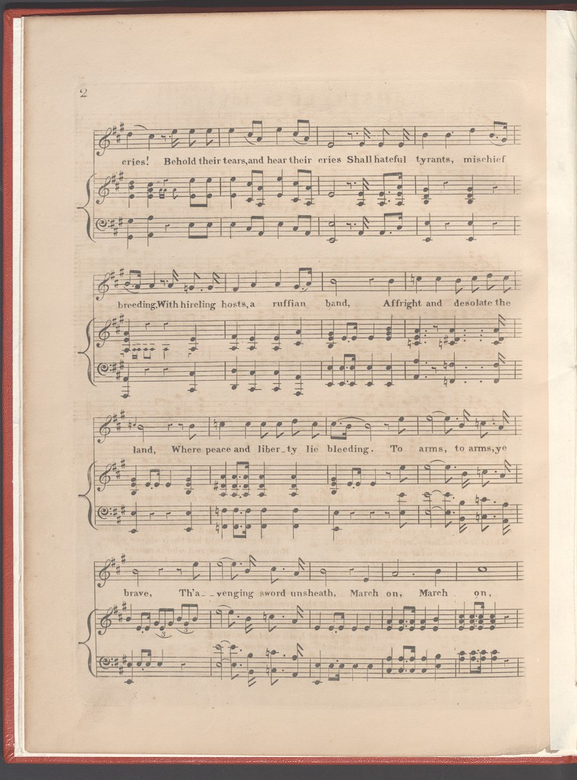
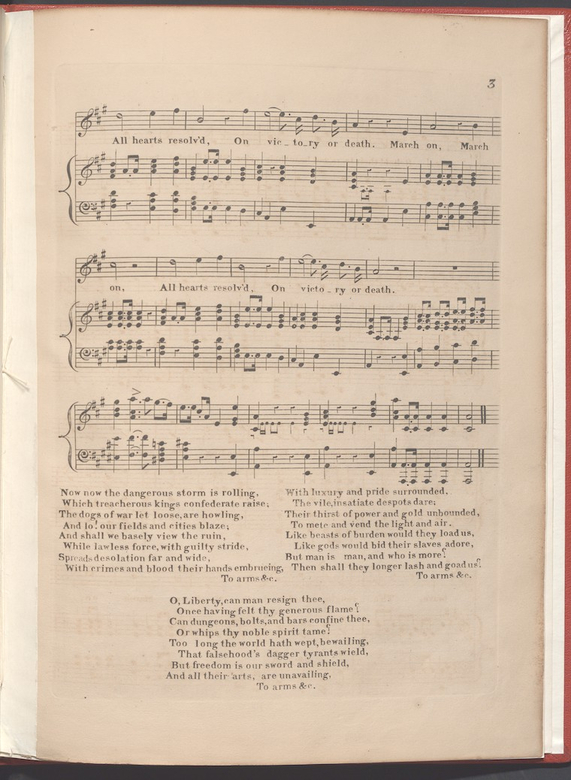
25 April 1792
Original lyrics
Verse 1
Allons enfants de la Patrie,
Le jour de gloire est arrivé !
Contre nous de la tyrannie,
L'étendard sanglant est levé, (bis)
Entendez-vous dans les campagnes
Mugir ces féroces soldats ?
Ils viennent jusque dans vos bras
Égorger vos fils, vos compagnes !
Chorus
Aux armes, citoyens,
Formez vos bataillons,
Marchons, marchons !
Qu'un sang impur
Abreuve nos sillons !
Verse 2
Que veut cette horde d'esclaves,
De traîtres, de rois conjurés ?
Pour qui ces ignobles entraves,
Ces fers dès longtemps préparés ? (bis)
Français, pour nous, ah ! quel outrage
Quels transports il doit exciter !
C'est nous qu'on ose méditer
De rendre à l'antique esclavage !
Verse 3
Quoi ! des cohortes étrangères
Feraient la loi dans nos foyers !
Quoi ! ces phalanges mercenaires
Terrasseraient nos fiers guerriers ! (bis)
Grand Dieu ! par des mains enchaînées
Nos fronts sous le joug se ploieraient
De vils despotes deviendraient
Les maîtres de nos destinées !
Verse 4
Tremblez, tyrans et vous perfides
L'opprobre de tous les partis,
Tremblez ! vos projets parricides
Vont enfin recevoir leurs prix ! (bis)
Tout est soldat pour vous combattre,
S'ils tombent, nos jeunes héros,
La terre en produit de nouveaux,
Contre vous tout prêts à se battre !
Verse 5
Français, en guerriers magnanimes,
Portez ou retenez vos coups !
Épargnez ces tristes victimes,
À regret s'armant contre nous. (bis)
Mais ces despotes sanguinaires,
Mais ces complices de Bouillé,
Tous ces tigres qui, sans pitié,
Déchirent le sein de leur mère !
Verse 6
Amour sacré de la Patrie,
Conduis, soutiens nos bras vengeurs
Liberté, Liberté chérie,
Combats avec tes défenseurs ! (bis)
Sous nos drapeaux que la victoire
Accoure à tes mâles accents,
Que tes ennemis expirants
Voient ton triomphe et notre gloire !
Verse 7
Nous entrerons dans la carrière
Quand nos aînés n'y seront plus,
Nous y trouverons leur poussière,
Et la trace de leurs vertus, (bis)
Bien moins jaloux de leur survivre,
Que de partager leur cercueil,
Nous aurons le sublime orgueil,
De les venger ou de les suivre
See the other symbols of the Republic

Updated : 14 December 2022
